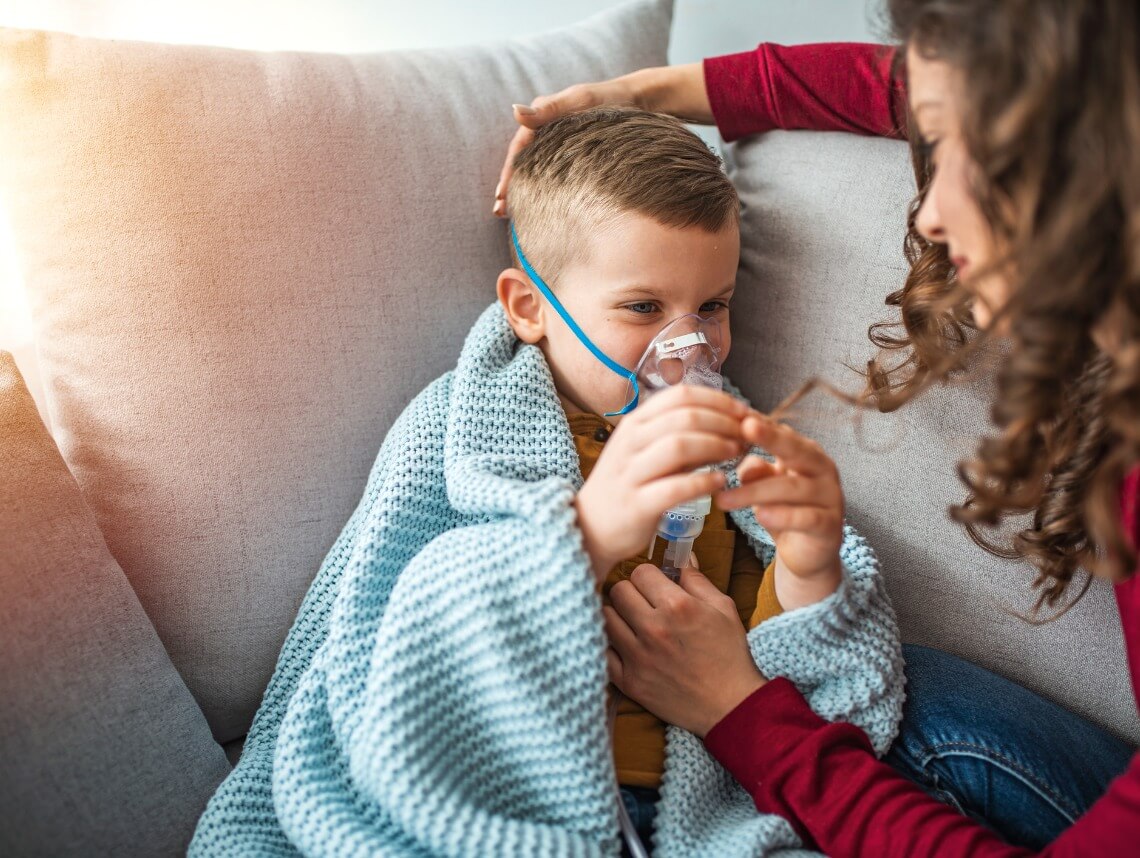Every parent wants their child to breathe easily and sleep soundly. However, some children face challenges that affect their ability to do so, such as breathing difficulties during sleep. Bilevel positive airway pressure (BiPAP) is a treatment modality used to manage various respiratory conditions in children. This blog will explore BiPAP, its symptoms and causes, the diagnostic process, treatment options, and essential aspects of caring for a child receiving this therapy.
What is bilevel positive airway pressure (BiPAP)?
Bilevel positive airway pressure (BiPAP) is a form of non-invasive ventilation used to support breathing in individuals with respiratory conditions. It is often administered through a mask or nasal prongs, and it provides two levels of airway pressure: a higher pressure during inhalation (inspiration) and a lower pressure during exhalation (expiration). This dynamic pressure adjustment assists in keeping the airways open, making it easier for the child to breathe.
Bilevel Positive Airway Pressure Symptoms
BiPAP therapy is typically prescribed for children with specific respiratory conditions that affect their ability to breathe adequately during sleep or while awake. Common symptoms and conditions include:
- Obstructive Sleep Apnea (OSA): OSA occurs when the upper airway is partially or completely blocked during sleep, leading to repeated interruptions in breathing and symptoms like loud snoring, restless sleep, and daytime sleepiness.
- Central Sleep Apnea (CSA): CSA is characterized by the brain’s failure to send appropriate signals to the muscles responsible for controlling breathing during sleep. CSA is less common in children but can occur.
- Neuromuscular Disorders: Some children with neuromuscular conditions may have difficulty breathing due to weakened respiratory muscles, making BiPAP therapy beneficial.
- Chronic Lung Diseases: Conditions like bronchopulmonary dysplasia (BPD) or cystic fibrosis can cause chronic respiratory problems, and BiPAP may be used to support breathing.
Diagnosing Bilevel Positive Airway Pressure
The diagnostic process for children requiring BiPAP therapy usually involves:
- Clinical Evaluation: A healthcare provider will assess the child’s medical history, symptoms, and conduct a physical examination.
- Polysomnography (Sleep Study): A sleep study is often necessary to diagnose conditions like OSA or CSA and determine the severity of the child’s breathing difficulties.
- Pulmonary Function Tests: These tests assess lung function and help diagnose underlying respiratory conditions.
- Blood Gas Analysis: In some cases, blood gas analysis may be performed to evaluate the child’s oxygen and carbon dioxide levels.
Bilevel Positive Airway Pressure Treatment Options
BiPAP therapy is one of several treatment options for children with respiratory conditions. Other treatments may include:
- Continuous Positive Airway Pressure (CPAP): Similar to BiPAP, CPAP provides a constant level of airway pressure but does not vary with each breath.
- Medications: Depending on the underlying condition, medication may be prescribed to manage symptoms or improve lung function.
- Surgical Interventions: In some cases, surgical procedures may be necessary to correct anatomical issues or remove obstructions.
Caring for a Child With BiPAP
- Education: Learn about the equipment and therapy so you can help your child feel comfortable and confident with the treatment.
- Regular Maintenance: Ensure the BiPAP machine, mask, and accessories are cleaned and maintained according to the manufacturer’s recommendations.
- Adherence: Encourage your child to use the BiPAP machine as prescribed by their healthcare provider, even if they feel better.
- Comfort and Support: Make sure the mask is comfortable and properly fitted to prevent leaks and discomfort.
- Regular Follow-up: Schedule regular follow-up appointments with your child’s healthcare team to monitor their progress and adjust the treatment plan as needed.
Bilevel positive airway pressure (BiPAP) therapy can be a lifeline for children with respiratory conditions, helping them breathe more comfortably and improving their quality of life. By understanding the condition, adhering to treatment, and providing emotional support, you can help your child manage their respiratory challenges effectively. Always consult healthcare professionals for guidance tailored to your child’s needs and circumstances.
Contact Care Options for Kids for Home Health Care in Florida
It can be hard to balance your time between work, home, and caring for a child. That’s why our team of skilled professionals at Care Options for Kids is here to help.
Our home health care services offer one-on-one care in the comfort of your home. We refer loving and competent nurses to provide customized care for families — from a few hours a day to around-the-clock supervision. Contact us directly to speak with a home health care professional or request a free Pediatric Consultation. Together we can determine the best plan of action to keep your loved ones happy and healthy.
If you or a loved one are considering Pediatric Home Health Care Services in Florida, contact the caring staff at Care Options for Kids. Call today at (888) 592-5855.






